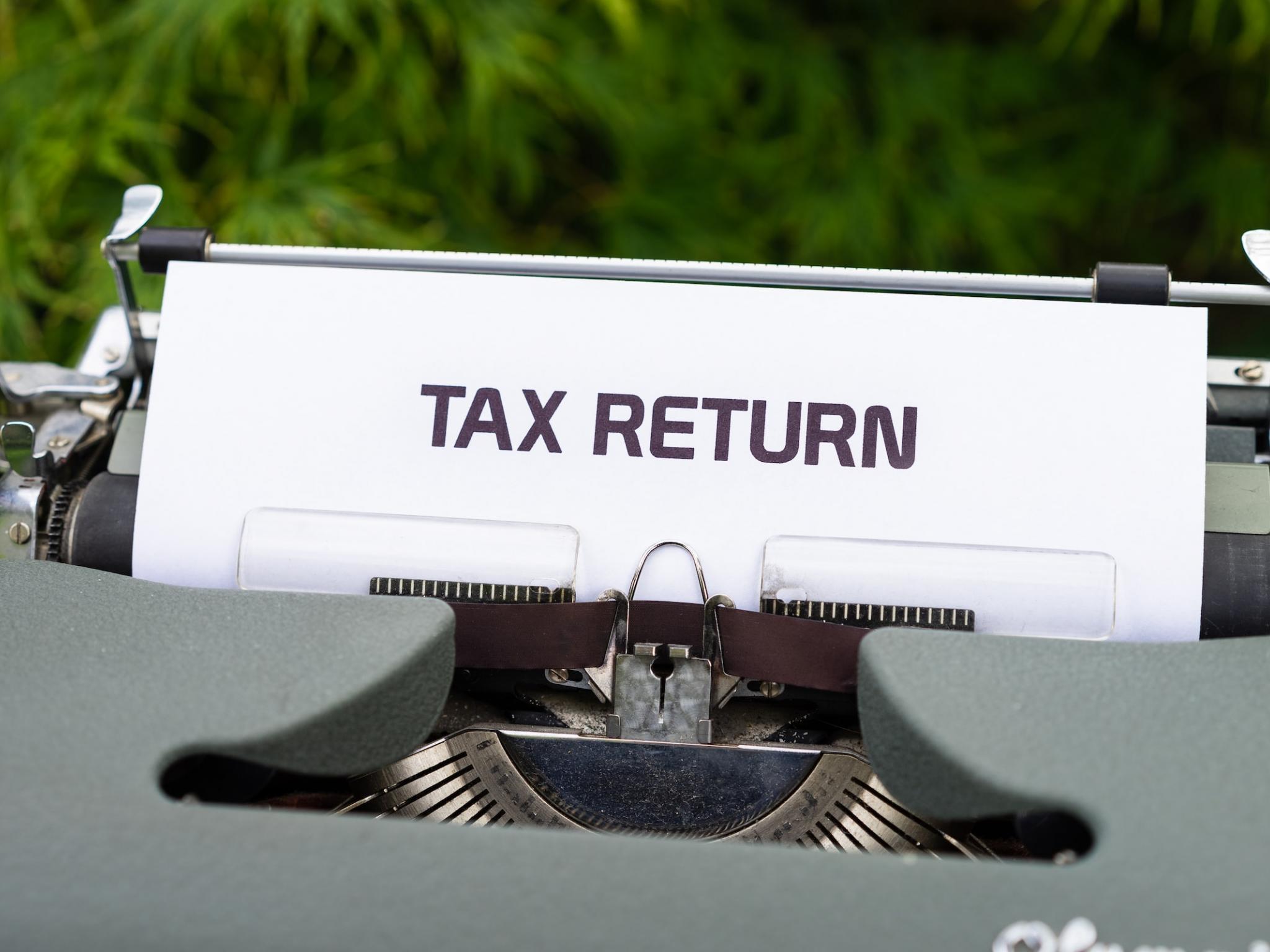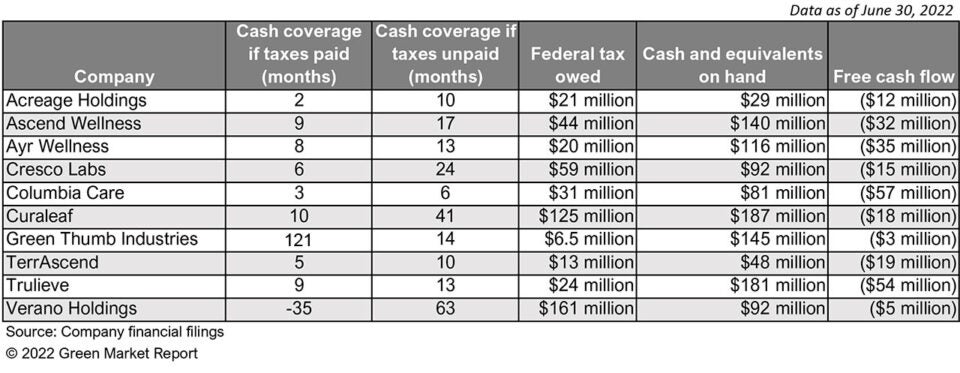
An analysis of financial filings by Green Market Report showed that ten publicly traded multistate cannabis companies are carrying over $500 million in federal tax debts.
The Multi-state operators (MSOs) are Acreage Holdings Inc. (OTC:ACRDF), Ascend Wellness Inc. (OTCQX:AAWH) (CSE:AAWH), Ayr Wellness Inc. (CSE:AYR) (OTCQX:AYRWF), Cresco Labs Inc. (OTC:CRLBF), Columbia Care Inc. (OTC:CCHWF), Curaleaf Holding Inc. (CSE:CURA) (OTCQX:CURLF), Green Thumb Industries Inc. (OTCQX:GTBIF) (CSE:GTII), TerrAscend Corp. (OTCQX:TRSSF) (CSE:TER), Trulieve Cannabis Corp. (OTCQX:TCNNF) (CSE:TRUL), and Verano Holdings (CSE:VRNO) (OTCQX:VRNOF).
How Much Do The MSOs Own?
All told, the MSOs mentioned above "owe the Internal Revenue Service an eye-popping $507,193,000, according to their second quarter financial reports," reported Green Market Report.

Additionally, Curaleaf and Verano, combined, owe the IRS $286 million. Both hold most of the tax debt. Verano Holdings owes $161.4 million, has $92.8 million cash on hand, thus, 78% more in taxes than the company had cash at the end of its second quarter.
“If the companies were forced to fully pay their federal tax bills, only one of the 10 – Green Thumb Industries – would have more than 10 months' worth of cash left with which to continue operating,” reads the report.
Do The MSOs Plan To Pay Their Debt? If So, When And How?
“Part of our capital allocation strategy is to lengthen our tax payment cadence,” Verano's CEO George Archos recently told shareholders in an earnings call. “The strategy is not unique to Verano and has been utilized amongst other large U.S. companies. The cost of penalties and interest for this is significantly below the available cost of debt.”
Archos noted that the company made a $37 million income tax payment in Q2 and that Verano has already paid $14 million in taxes for Q3.
“We continue to efficiently manage our income tax payable line and continue to manage as a cheap source of capital and generally keep about a trailing 12 to 18 months balance outstanding,” he said.
What Do The Cannabis Experts Say?
In May, Seeking Alpha reported on the worrying financial trend, after first quarter financial reports were released. Cannabis industry experts said that due to factors such as section 280E, the provision in the federal tax code that prohibits standard business deductions for those engaged in cannabis, the trend is likely to spread to the industry as a whole.
The Green Market Report noted that several industry experts warned that delaying tax payments as a financing strategy can be a major risk in both the short and long term.
“I totally get it, and at the same time, I think it’s a very risky strategy because it’s like Russian roulette,” said Roxane Peyser, a partner at Denver-based Fortis Law who has worked with legal marijuana companies for over a decade.
Morgan Paxhia, co-founder at San Francisco-based Poseidon Asset Management LLC said he's also concerned about the proliferation of that type of financing strategy.
“Intentionally now running up 280E tax debt as a means of conserving cash … ideally, that’s your last lever, or if you are going to pull that lever, it’s got to be very well-managed, tightly managed, there’s got to be a clear plan and a high probability of executing against it. Otherwise, I think you do get upside down,” Paxhia said.
IRS interest for deferred taxes is only 3% plus the prime short-term federal interest rate, which as of Monday was 6.25%, for a total of 9.25%. However, Paxhia noted, "the range of credit interests from private lenders these days is running about 12%-14% for those with good credit and upwards of 16%-20% for those whose credit is less than stellar. That makes the IRS interest rates far cheaper than private capital."
Nevertheless, a tax attorney who requested anonymity due to his close work with several MSOs said: “They have to pay their taxes sooner or later (...) They’re going to fail, because so many of these managers are burying their heads in the sand, and what they should be doing is coming to grips with this and taking action (...) They’re saying, ‘We admit we owe this tax, and we’re just not going to pay it.’
IRS Deadline
Nick Richards, a former IRS tax attorney said the IRS will most likely do is work with companies to get them onto payment plans.
“If you have the money to pay the taxes, your options are really to pay the tax,” Richards said. “The IRS isn’t going to take all your money. They’ll let you into a payment plan. That’s what they did for (Statehouse).”
Will MSOs Start Turning A Profit?
Paxhia said each company needs to be evaluated individually, based on more than just cash flow or tax liabilities. He referred to Green Thumb Industries as a leader among MSOs for its low tax liability and high cash balance ratio and noted that it is doing well so far with a relatively cautious expansion approach.
Paxhia and others concurred that there are other factors, including rising federal interest rates and an upcoming hiring wave at the IRS, with a macro-level plan to increase federal audits and revenue.
Rising interest rates have already made capital even more scarce and costly, and the new IRS agents could, in part, by targeting cannabis businesses, as the IRS knows the marijuana industry is particularly lucrative for them.
Photo: Courtesy Of Markus Winkler On Unsplash







